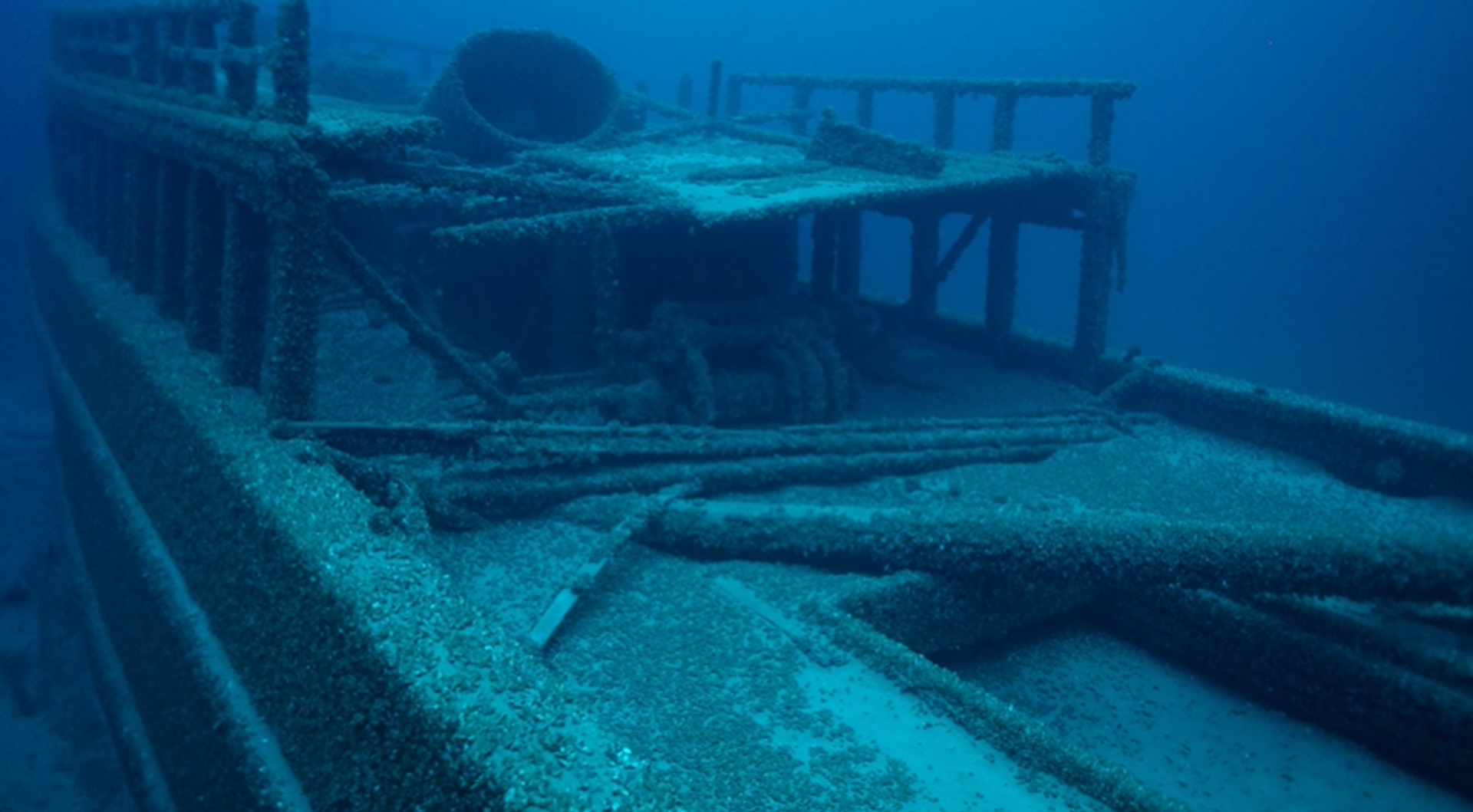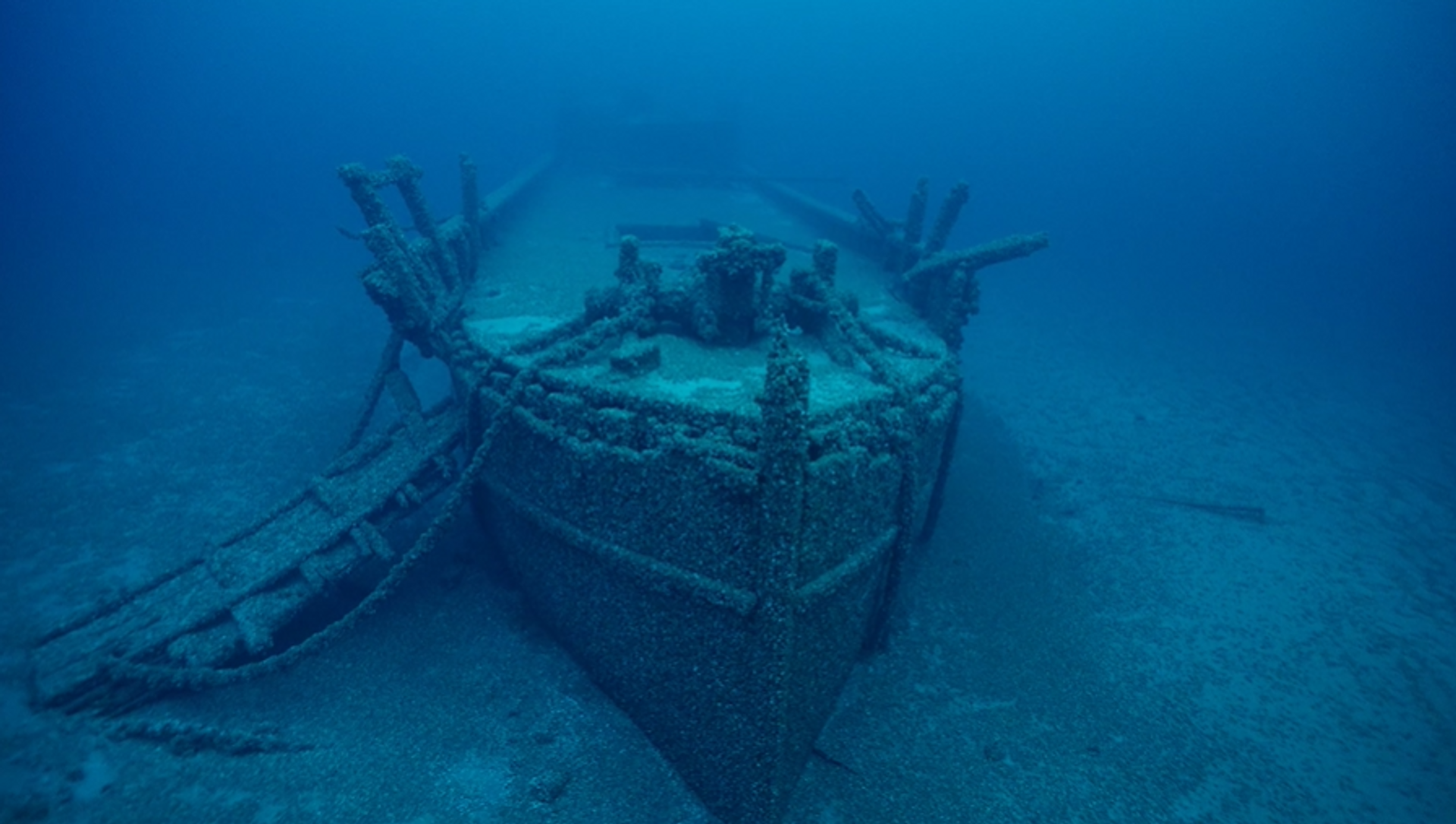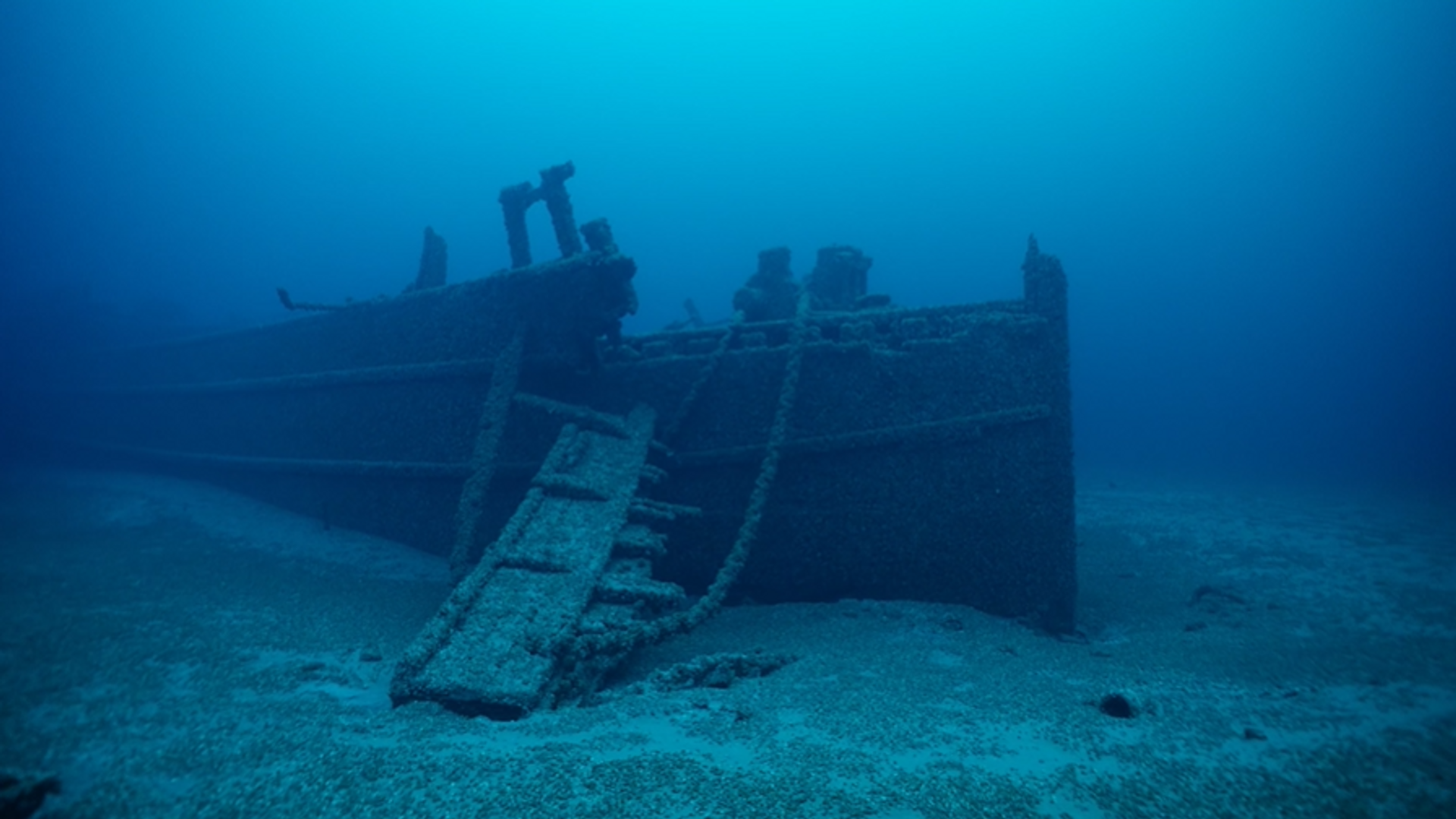Documentarians Find Nearly Intact 128-Year-Old Shipwreck Below Lake Huron
Subscribe
The pair of filmmakers made the discovery while composing a documentary on the ecological damage caused by invasive freshwater mussels introduced to the Great Lakes region more than three decades ago.
Documentary filmmakers made a stunning discovery in June after uncovering the nearly intact remains of a 128-year-old vessel that met its end in the waters of Lake Huron in 1895, new findings have revealed.
Filmmakers Yvonne Drebert and Zach Melnick were investigating the effects of the invasive zeba and quagga mussels in the lakebed after a source from the United States Geological Survey told them scientists had detected something strange in sonar readings.
Using remotely operated vehicles, the team scanned the bed of Lake Huron - in an area just off the coast of Ontario's Bruce Peninsula - expecting to find nothing but a “pile of rocks,” Drebert said.
Instead, they discovered the Africa, an American cargo steamer that disappeared in 1895 during transit from Ashtabula, Ohio, to Owen Sound, Ontario. The Africa and all 11 members of its crew on board were lost following a snowstorm.
The ship was also towing a barge at the time, the Severn, which became disconnected during the storm. Severn ran aground, and its crew were saved, but the Africa's fate saw it laying at the bottom of the lake.

1895 steamship wreck "Africa" discovered in Lake Huron during a documentary
Sending their remote vehicles almost 280 feet (85.3 meters) below the surface of the water, the couple made the discovery as soon as they stumbled upon a “huge structure.”
Officials later determined the near-perfect intact ship was caked in the invasive mussels that were the subject of the couple's documentary. But while the mussels do damage shipwrecks, they also filter the lake’s waters, making it clearer and easier to find shipwrecks.
"There are so many quaggas filtering the Great Lakes, that the lakes are up to three times as clear as they were before the mussels," Drebert explained. "The quaggas are the reason we're able to see the shipwreck in almost 300 feet of water without any additional lights. But they're also responsible for making wreck identification in the Great Lakes incredibly difficult."

1895 steamship wreck "Africa" discovered in Lake Huron during a documentary
Drebert's husband agreed with the irony of their discovery, noting the mussels inadvertently helped in the cultural discovery despite their adverse ecological effects.
"Before discovering the Africa, our work focused on the ecological impacts of the mussels – which have devastated fisheries around the lakes. We hadn't considered the effect they could have on our cultural heritage," said Melnick, adding that "the mussels have truly changed everything in the deep waters of the Great Lakes."
In March of this year, another shipwreck was discovered in Lake Huron, off the coast of Michigan. The cargo vessel, named the Ironton, had long eluded shipwreck hunters since it sank in September of 1894.


